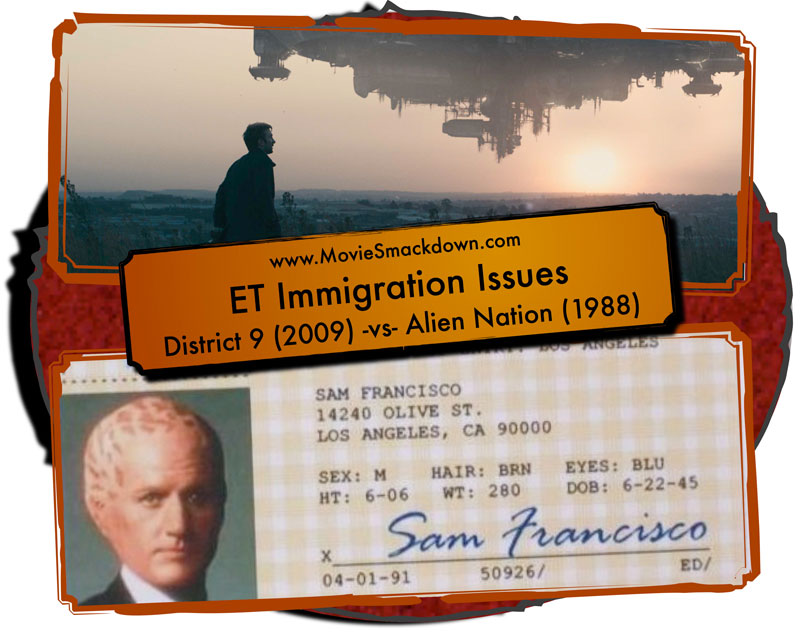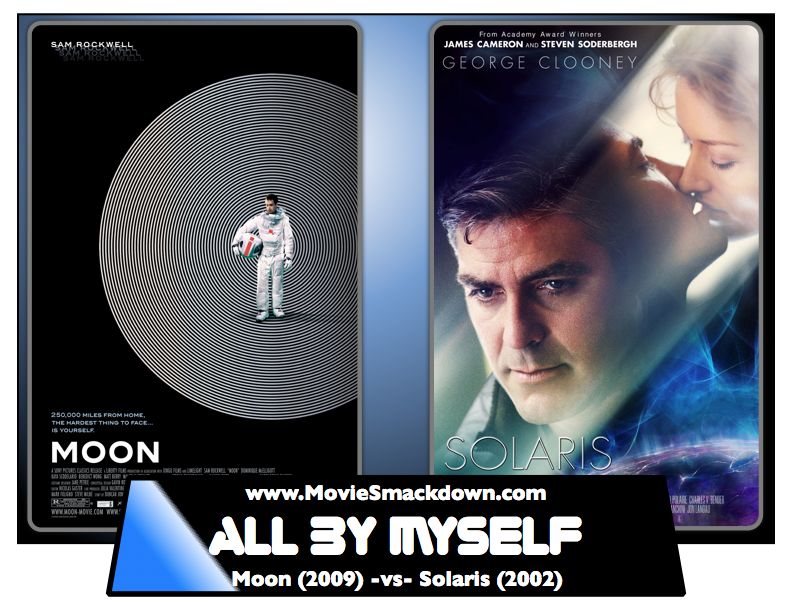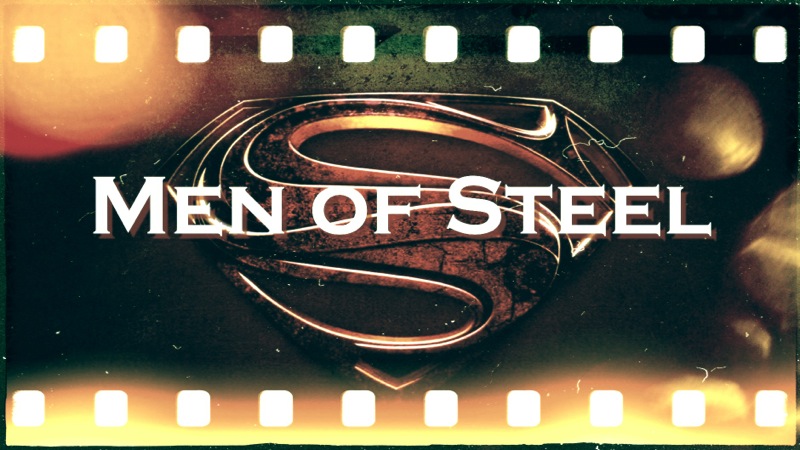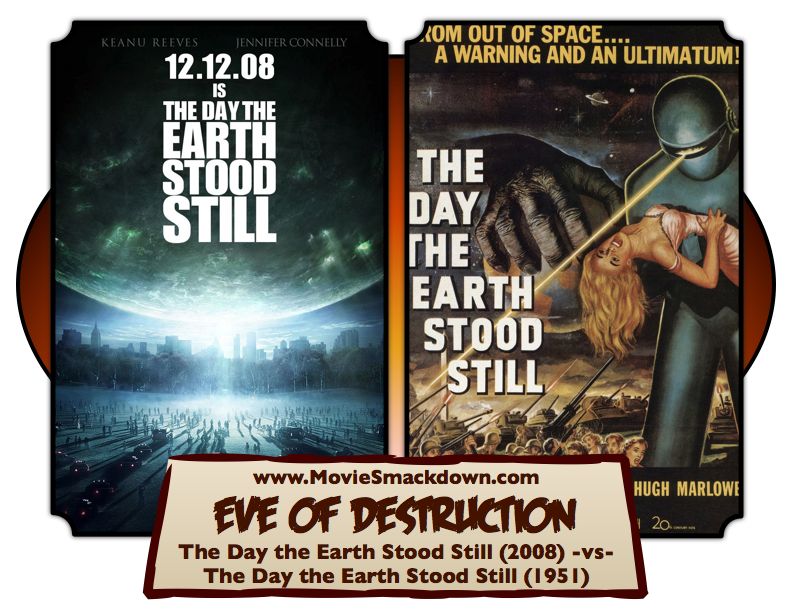
 The Smackdown
The Smackdown
What if aliens come to Earth and we end up treating them as shabbily as we treat members of our own species?
Both Alien Nation and District 9 use aliens as metaphors for socially-conflicted minority groups. With Alien Nation, the Newcomers are a vague avatar for homosexuals, blacks, and women. In District 9, the prawns most definitely represent the oppressed Apartheid-era Africans as well as the growing number of refugees in third world countries (i.e. Darfur).
A good film, however, can’t be primarily metaphor. It also needs to be, well, a good movie.
So, today, we throw these socially-conscientious sci-fi flicks against one another to see not just which one U2’s Bono would most likely write a title song for, but which one is actually a film worth seeing.
[singlepic id=197 w=320 h=240 float=right]
The Challenger
District 9 is actually a feature-length version of director Neill Blomkamp’s short film, Alive in Joburg. His first feature directing gig, Blomkamp retains the premise of his short film — that of alien refugees trapped on Earth, enduring oppressive Apartheid-like conditions — and sparks a fire by introducing Wikus van der Merwe, a multi-national security force representative tasked with relocating the “prawns” from the slums of District 9 to the more isolated District 10.
During the eviction process, Merwe ingests a substance that begins to alter his biological make-up, transforming him into one of the very prawns he’s been sent to relocate. It doesn’t stop there — you see, due to his new hybrid status, Merwe can help governments operate the DNA-locked machinery of the aliens, and must now flee for his life in order to find a cure for his rapidly progressing mutation.
[singlepic id=43 w=320 h=240 float=right]
The Defending Champion
The action in Alien Nation takes place a few years after nearly a quarter-of-a-million members of an alien race named the Newcomers crash land on Earth. They’re not just lost, they’ve been created by genetic engineering to be especially good slaves: intelligent, powerful and able to adapt to situations as they occur. In this case, the adaptation is to integrate themselves into American society, most notably, Los Angeles. (If you’re an illegal alien, where else?)
The story gets told through the filter of the familiar buddy cop film where two mismatched partners start out as huge pains to each other but, as the film continues, they come to respect the other and become friends. In this case, the human partner is detective Matthew Sykes (James Caan), a cop who lost his previous partner in a Newcomer hold-up. He agrees to take on a Newcomer partner in order to gain access to the alien culture and solve his partner’s death. That Newcomer partner has been given a human sounding name of, yes, Sam Francisco. It turns into a gritty film story about how a new drug has been manufactured that is targeting Newcomers.
The Scorecard
On paper, both of these films have compelling premises, asking whether extra-terrestrial contact is going to be any big deal, or will it simply unleash more “human” behavior of racism, oppression and crime. While you could make an argument that neither film’s premise is more realistic than the other, there’s no doubt that the 21 years that separate them gives the advantage to District 9 in terms of how authentic it feels. Much of it, particularly the beginning, feels like a documentary.
I won’t lie to you. I was way too young when Alien Nation came out to appreciate it and I never saw it in theaters. Seeing it as a DVD on a home screen did not cause it grow in stature. It’s tone is up-and-down, balancing some fairly cheesy comedy with a serious (albeit safe) examination of urban life in America. Its earliest moments, however, have their own power, though. Take the opening scene, where a clearly racist Sykes rambles on about how much he hates Newcomers. As he drives and rants, we see images of Newcomers whoring themselves out, hawking merchandise, and even getting drunk off sour milk. It’s a point well-made.
The Newcomers are inherently human-looking, just with larger heads and lavender freckles. The Prawns, in contrast, are clearly intended to be more alien. The power of Alien Nation at the beginning is how much like us these Newcomers seem to be. The power of District 9 is how different they seem. Yet, in both cases, “The System” has absorbed them much as Ellis Island processed a lot of Europeans into America. It’s not pretty, the first generations get a raw deal but, the hope is, it will all work out when the outside group is assimilated into the inside group.
Both District 9 and Alien Nation embroil their aliens in sexual mischief, black market business, and consumption of odd foods. Cat food or sour milk, take your pick.
The Prawns are flat-out ugly, and their slum habits reinforce it. These clicking and clacking creatures, with oily tentacles and shingled skin, clump around eating raw cow meat, pissing waves of lime-colored urine, and puking up black gook. It’s clear that Blomkompf wanted to tap into our aversion for anything that doesn’t look, smell, act, eat, or screw like we do – and it works.  And this is a genius move, since it puts the audience on the side of the locals, who want these aliens relocated outside Johannesburg. Sure, the locals back up their wants with accusations of crime, inherent immorality, and such.  But in the end, the locals are just grossed out — and, in a very uncomfortable way, so are we.
The Newcomers, of course, end up being pretty much like us, with a few twists and turns. It has the potential to be just as interesting but the execution fails. Here’s an interesting backstory. The screenplay was written by Rockne O’Bannon who got his script taken from him by James Cameron who came in and re-wrote it, only to leave the project and put O’Bannon back in the business of re-writing James Cameron. While that had to be a high for O’Bannon, you still have to wonder what Alien Nation would have turned out like had Cameron been the auteur behind it.
Here’s the problem. Alien Nation has a story that fails in its nerve, and ends up recycling stale conventions of buddy cop films. There aren’t many surprises here or revelations or truly transcendent moments. District 9, in contrast, dares to be great and mostly is but it gets severely tangled in how it deals with the main character of Wikus van der Merwe, our protagonist who will now experience the film for us. Merwe is quirky and cute and innocent and sweet and also an employee of the ruthless security group which is tasked with relocating the Prawns to District 10. In fact, Merwe’s heading the effort after getting enough brown on his nose to get a promotion.
The first third of District 9 is near genius. It’s probably flawless. The social issue, the clear and subtle audience manipulation, and just the clever premise make for a great cinematic experience. And these are probably the parts of the film most directly lifted from Blomkompf’s short film. However, after Merwe is sprayed with the strange “liquid,” things begin to fall apart as to who exactly Merwe is as a character, and also what exactly this movie’s about.
The film seems to be about culture clash, our aversion to that which is different, and our general indifference to strife. In fact, Blomkompf and Jackson have touted its Apartheid/Darfur overtones. Yet after Merwe is infected and the MNU see him as an opportunity to use the alien weaponry (which can only be used by the aliens), the film transforms into a post-industrial military complex critique with ruthless military men gunning for… well, guns. But like Merwe’s own mutation, this transformation is always half-done, as the film still wants to be about bridging the differences that divide two people and escaping oppression.
So, in the end, what started as a great film with great sci-fi and thematic promises, quickly descends into an inconsistent jumble of character and theme with a really cool (and it is pretty cool) action set piece at the end that lacks resonance and emotion. It may seem odd to say this, but the film just seems unaware of itself both narratively and thematically. Just take the ending, where the alien mothership leaves WITHOUT the refugees — who are then promptly transported to District 10, which Merwe described as a concentration camp.
Did I just watch a two-hour movie so that it could set up “District 10,” where Johnson returns with his alien brethren and stage a break-out of District 10?
It looks like it. Alien Nation also had quite a life after its feature debut. The next year it became a TV series on Fox for a full-season, then it went on to produce nearly a half-dozen TV movie versions.
On a technical level — and just as a piece of entertainment — District 9 is a great watch. Â You won’t be bored. Â 21 years earlier, Alien Nation may have been good enough to make $32-million, but it feels slow and unsurprising based on how we like our sci-fi these days.
The filmmakers of District 9, however, do a great job combining plot elements and moments you didn’t necessarily see coming to create a new stake or question, even if those combinations also undermine character and theme. But you will never be bored and will, in fact, be surprised by some of the plot turns that occur — especially in the third act, where exploding human beings, lightening guns, tractor beams, flying spaceships, mech warriors, and all out war play out in great sci-fi fun. This film also has one of the most clever climax switch-ups I’ve seen in a long while — a moment at which you think the film will end but instead delivers something different. At one moment, Merwe seems on the cusp of victory, taking off in the smaller craft to head to the mother ship — but then he’s shot down. Â Wait — what? I thought the movie was over? Â Nope. The filmmaker’s have something else planned, throwing us back to a dark plot line about a local crimelord aching to ascend to be an alien via shamans and magic. It’s really great plotting and structure; the film masters these elements. Â It feels clean and concise and well-crafted, even if the characters and theme fail to follow suit.
The Decision
District 9 is ambitious, and yet another entry in the growing genre of serious sci-fi. It’s also a seriously flawed, if well-made, film that doesn’t know what it wants to say or how to best say it. But the aging Alien Nation is simply too cheesy and poorly-crafted to beat this film, and even if it were amazing, I don’t think it could match the structural and technical mastery seen in District 9.  It’s a better story and more powerfully told. If you haven’t seen it, you need to get with it ASAP.
MORE FROM BEAU ON DISTRICT 9
But the filmmaker has done too good a job of “alienating” the aliens to make us want these differences to be bridged — or to even care about them. The aliens are disgusting creatures, who show no signs of bettering themselves outside of one, lone prawn named Christopher Johnson. This is why I said that the look of the aliens in District 9 is motivated by both theme and genre — because a great deal of the film plays as horror just as much as sci-fi. As we watch Merwe cough up black bile, scarf down rotted cat food, pluck out his own bloody teeth, and peel back his skin, we aren’t appreciating that “underneath it all, we’re all the same.” No, we’re freggin’ grossed out — it’s horrific. We want it to stop. Screw diversity!
It doesn’t help that the main character’s goal throughout the film is to NOT be one of these creatures, and that desire never abates and is, in fact, endorsed by the film. In fact, Christopher Johnson — the alien that befriends Merwe — promises to help cure Merwe. For a film that seems to be cautioning us to embrace diversity, District 9 spends its entirety exploring how not to embrace it. And it’s not a tragic tale where the character learns by not accepting change. At the film’s end, the filmmakers leave us with the hope that in three years Merwe will be back to his “normal” human self. A bolder choice would’ve been to have Merwe accept his transformation, realizing that in the end he is still the same person. Because he doesn’t do this, the film’s theme vanishes. Not only that, Merwe never truly feels the plight of the prawns since he never accepts being one  — a narrative hole not helped by Merwe experiencing military oppression and not social oppression as his transformation escalates. So much for the socially-compassionate look at Apartheid South Africa…
But as a character, Merwe presents a clear problem. Like I said, initially we love this guy. But then as he begins evicting the aliens, Merwe shows a rather unpleasant side. Now, granted, I never felt bad for the aliens being evicted. I never hated Merwe for forcing them out of their homes. I couldn’t — Blomkompf did a good job of making me very pro-human by this point by painting the prawns as irredeemable. However, Merwe scheming to steal away a prawn’s child in order to get him evicted starts to sully his character. Or how about threatening them at gunpoint and not batting an eye as they’re gunned down. The nadir of this is when Merwe aborts a hive of baby prawns, lights them on fire, and then describes — while laughing –the sound of the fire as the “pop-crack of popcorn.”
Hold on…what?! Aren’t I supposed to like this guy? I mean, sure I don’t like the aliens so much, but I at least want my human to be above the corruption in the area — human and prawn.
But wait — maybe I’m not supposed to like him. Maybe when he gets sprayed by this juice, we’re supposed to see his mutation as a sort of penance. But no more than fifteen minutes into his transformation, the filmmakers try to sell a scene where MNU scientists force Merwe to test alien weaponry. They bring out a live prawn for target practice and suddenly Merwe — who no more than twenty minutes earlier was describing prawn abortion as an Orville Redenbacher microwave treat — sobs over having to take this prawn’s life.
And as I said, Merwe as a character simply doesn’t work. He remains inherently selfish and pro-human, only letting Johnson go at the end on the hope that Johnson will return to cure his mutation. Â Again, the stronger choice would’ve been a clear acceptance of his mutation — not a resignation to it in the face of certain death.
It’s just inconsistent. It slowly unravels the story and showcases other inconsistencies and plot holes. Why was the command ship that navigates the main craft jettisoned at the beginning of the film, only to be reinserted when they wanted to leave? Why do these creatures — who can de-limb a human with a soccer kick — not fight back or revolt? With such superior weaponry (capable of taking down the MNU headquarters as seen), why have the prawns never fought back or just staged a revolt?
The most glaring and annoying inconsistency is that the same “fuel” that powers the ship that promises Merwe and Johnson’s escape, is the same biological substance that somehow produced a mutation in Merwe. Not only that, but this fuel has been collected from dozen of sources around District 9…yet Merwe is the first and only person to have mutated? Â The best answers we get to any of these questions are vague at best, and leave a rather unsatisfied feeling. Sure, I sort of got that the fuel powered the ship and caused the mutation, and that in order to fly the ship it had some sort of biological interface to it…but…hm, just underdeveloped. It feels contrived, and contrivance in sci-fi is just deadly.





Nice review. Glad to see you come around on this film a bit. I can see where why the thematics and character stuff may get jumbled for some, but I thought I’d give my take on it and why it really all works for me in the end.
I guess I should start by saying I disagree with the claim that that Districts 9’s use of characters and thematics gets jumbled. The word “jumbled” kinda suggests a mistake and I think it’s anything but. Van de Merwe is a likable guy who does really bad things because he’s just like everybody else. He’s an everyman. He describes the popping like popcorn thing because he’s bursting eggs, the way we take chickens and cook up their unborn young for breakfast. It’s “ok” to him because 1. the aliens are already totally dehumanized to most of the worldwide population and 2. he’s not really killing “aliens,” he’s cooking up some eggs. He’s doing it passively, allowing himself to rationalize his actions. It’s like saying you’re OK with torture cuz we need important information, then having pliers put in your hand, shoved into a room with a bound up naked suspect and told to go to work. Put the gun in his hands, the talking, conscious alien right in front of him and of course he has a problem with it. He’s human. He doesn’t kill people/aliens, he let’s others do it for him and washes his hands. People are often naturally hypocritical, full of contradictions. That’s what makes them human. In a film that so obviously talks about race and racial oppression, I thought it was a much stronger choice to use a character who was contradictory – not good, not bad. You get the one good, noble guy as your protagonist who is totally unlike all the rest of the terrible humans and we might as well be watching Avatar.
Now why I thought the transformation stuff works is because it is horrific. We as an audience don’t like the aliens and find them disgusting. It makes sense that our hero wouldn’t want to turn into one. If an entire race of alien puppies invaded Earth and suddenly started transforming people, I’d have a problem with my transformation, no matter how cuddly I was. I like being me. Sure, I may still be me on the inside, but what exactly was wrong with me before? Why are puppies so much better? Just as the question arises, what’s wrong with the aliens. If they started transforming into people and suddenly had a problem with it, should we say, “Hey, get over it, we’re all the same on the inside.” No, because they have a right to want to look like themselves. It’s who they always have looked like. Sure, eventually they’ll probably be ok with it or at least settle and get used to it, just as Van de Merwe fully becomes one in the last scene, while still having a trace of his personality.
Again, the film aims to be realistic here – it’s shies from being too preachy. In the end, he becomes a prawn anyway. He doesn’t want to, he doesn’t eventually see how being a member of the indigenous aliens are so much better than being human (cough avatar cough) And that’s what I like about the film. It could make its thematics clear-cut and slam us over the head with them. But it’s making an observation that despite how lofty we might pretend to be at times, how we all know the differences between right and wrong, how socially forward we all are, things don’t always turn out that clear and perfect when the gun’s in our own hands. The film is shot as a documentary and this lack of clear distinction between right and wrong, the wealth of human contradictions, help it feel real and raise real questions about not only the topic but ourselves as an audience.
Finally, I gotta come to bat for the whole weapons thing. Sure, the mech at the end is a little much, probably wasn’t necessary. But it is a sci-fi and was pretty sweet. So there’s your popcorn. Moving on. The exploitation of the aliens for their technology is something that I think works. I don’t know that an hour-and-a-half of walking around the refugee camp watching Aliens cry would’ve been enough to fill an audience’s needs. Even if this sounds heartless, I would’ve eventually gotten bored. It’s just a measure of story and narrative expectations. We expect things to happen, especially given certain genres like Sci-Fi. But this arms manufacturing side story helps what the film is trying to do and say. First, if the prawns are that disgusting and really had no benefit to us, why keep them on Earth? They want to go home. We want them to leave. Why wouldn’t we try to find a way to get them out of here? Look how happy humanity is when the ship disappears at the end. It’s New Years Eve.
But wait, they have awesome weapons? Let’s slow the train down a bit. Now they got something we want. They could’ve gone a different way, maybe made them edible, their blood cures diseases or something (though that would’ve kept them from being the same on the inside). Point is we need something from them we can use in order to make them important to everybody. We basically want their oil, the black liquid stuff that transforms us and allows us to use those sweet, sweet weapons. They’ve got guns? Hear the turnings of industry kick into gear, the vaults open up. That which makes the world turn. Greed. A viable and human reason for why we’d want to keep such animalistic, repulsive and useless beings here.
Now, the fact that the weapons sub-story plays so closely to Van de Merwe’s transformation is also important to the thematics. Because it shoves the gun back in his (and our) hands. It takes the story away from the oppressed civilization and puts the importance squarely back on Van de Merwe, as least as far as he’s concerned. The alien Christopher tries to point out that Vandy may have to wait 3 years for help, cuz he’s also gotta think about the millions of aliens that are in need of saving. But Van de Merwe doesn’t care about that. And neither do we. We care about the protagonist. The human. It’s terrible if these aliens get put in internment camps or dissected, really. But this guys turning into one of them!!! He can operate the guns! Someone HELP!
The film leaves us with a little wink to how self-involved people can be. And maybe a sour taste in our mouths because of it. It calls into question us as audience. How well we can muse about race relations and good/bad, until we’re put in a crappy situation. Almost immediately, the focus shifts quickly back to home. We can relate to Van de Merwe, cuz end of the day, us realizing “we’re all the same on the inside” just isn’t that human an understanding. Sure, our protagonist could’ve realized at the end that he really didn’t matter in the grand scheme of things, but it would’ve rung false with the tone of the rest of the film. The objectivity of the documentary. And he does realize it, at least a little bit, by helping Christopher and his son escape. So there’s some redemption. He’s not all bad, he learns a little bit. And we need that for this to be a hopeful film, for there to be even a glimmer of hope that humanity can improve on itself. But even this sacrifice is performed only after Van de Merwe considers himself too much of a lost cause. If I can’t help myself, might as well now help the aliens. His wants and needs come first, which tragically happens to be a pretty human characteristic. So the film could’ve been more clear cut, more black and white, good and bad defined even in the ending. But it’s shot like a documentary. And it’s human. And we’ve already had one Avatar this year.
Tell that to Hitler.
Well, sure, but sometimes kicking this stuff around is part of the fun. What fun would LOST be without the chance to debate it after an episode?
My forst comment on this would be to ask why the need to actually have all these questions answered? Is not a little bit of mystery allowed?
Wow! You have raised so many good questions that my brain is on fire! What say you, Beau?
I find the film’s unanswered questions most absorbing: E.g., the distilled liquid fuel causes human DNA mutations, so us homo sapians Earthlings may have a common ancestral link to these aliens. The manufacturing of advanced alien technology may have required hands &/or opposed thumbs, so did the aliens mutate into “prawns” during their voyage to Earth? What was the purpose for their arriving on Earth: mechanical or fuel failure?, an accident or failed mutiny?, or deliberate colonization?, an escape or quarantine or for scientific exploration? Why is Christopher J. so intelligent and different in demeanor compared to the majority of the prawns?; is he from an upper educated caste/nationality on his planet compared to the 400,000 prawns found sealed in squallor on board the ship? Maybe this was an inter-galactic “serf” transport or “slave” ship? Also how does Christopher know his home planet has a DNA-mutation antidote unless they WERE also humanoid and not shrimp-like? Even their weapons raise questions, like, were they developed or converted on Earth to protect the aliens from worse human treatment by scientists like Christopher?
Oh, and “population control” and “punishing aggressive elements” is not the same as pulling the trigger and killing someone without reason. Not even for Wikus.
I don’t think you’re looking at this the right way.
The story deliberately turnes over a number ofHollywood cliches, and then you go and complain about their lack.
They actually went to lengths making the prawns as humanoid as possible (perfectly human gestures and body language, and look at their eyes). But YES, they are alien. That’s what they are.
Well, they could have made them furry and cuddly too, I suppose.
And Wikus is a great hero for this film, as he is definitely not a hero. He’s a not too bright middle class average joe, doing his job every day, which happens to include forced eviction and burning alien babies alive. He actually believes he’s doing the right thing, or at least he can silence his doubts with his middle-class life’s comforts.
They don’t have a dramatic “Oh, now I realize how wrong I was” monologue with solemn music, actually that would have discredited the whole movie for me.
But in the end he chooses to stay behind and die so that the prawn can escape, and earlier we have him admit to Christopher that the relocation camp is no more than a concentration camp.
I don’t think a sequel is necessary, but if there will be one, I’ll keep my fingers crossed so that they dont’t mess it up.
He didn’t collect the fuel from around district 9, he made it out of numerous components, which he then processed, and some of which were so rare that it took over 20 years to collect them all.
District 890 coming Summer of 2189.
But see, by then the aliens are going to show up, see all these films we’ve made about them, turn and go “wtf?” and then wipe us all out.
Then we’ll have alien films that talk about a group of human refugees stranded on their planet, bothering them with their loud cellphone rings, constant txting, and annoyingly high-tense political discussions about healthcare.
Considering the numercial nature of the film’s title, perhaps they’re aiming at a franchise, a la Oceans Eleven etc. Could end up like Robotech. 😉
I think it’s bad if it fails to make it clear it wanted them unanswered. It seemed they couldn’t answer it and were simply trying to bridge the director’s short film with the “thriller” ride it went into during its second act. In the end, they fit like disjointed lego pieces, and leave a lot of “huh?”
But it is a great ride.
The question re a District 9 sequel would be: would we win if they came back weapons blazing? Probably not. Cue Roland Emmerich for director, Will Smith for stunt casting and perhaps even a post-teenage Haley Joel Osment for cannon fodder.
You’re right, though, District 9 did leave some unanswered questions. But is that neccessarily a bad thing?
Your review pretty much nails it for me, Beau. “District 9” is a great ride, flawed and broken in the logic department, but powerful and raw and new and a great watch. “Alien Nation” maybe hasn’t aged as well as it could although I remember seeing it when it was released and being transported by its own charms. My friend, Rock O’Bannon, is credited with the screenplay on “Alien Nation” but was re-written by James Cameron who left the film and then Rock had to re-write his own screenplay. But the decision here is the only one you can have made… but, boy, is that sequel set-up transparent!
Such interesting look into racism, slavery and the workings of the government all mashed into one…I definitely recommend this movie..!!